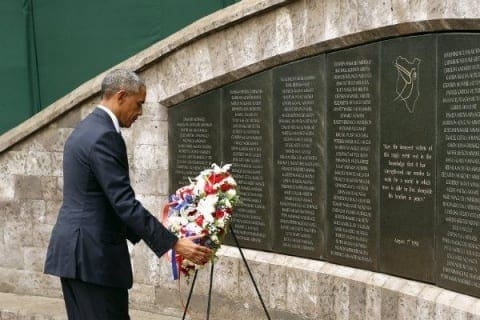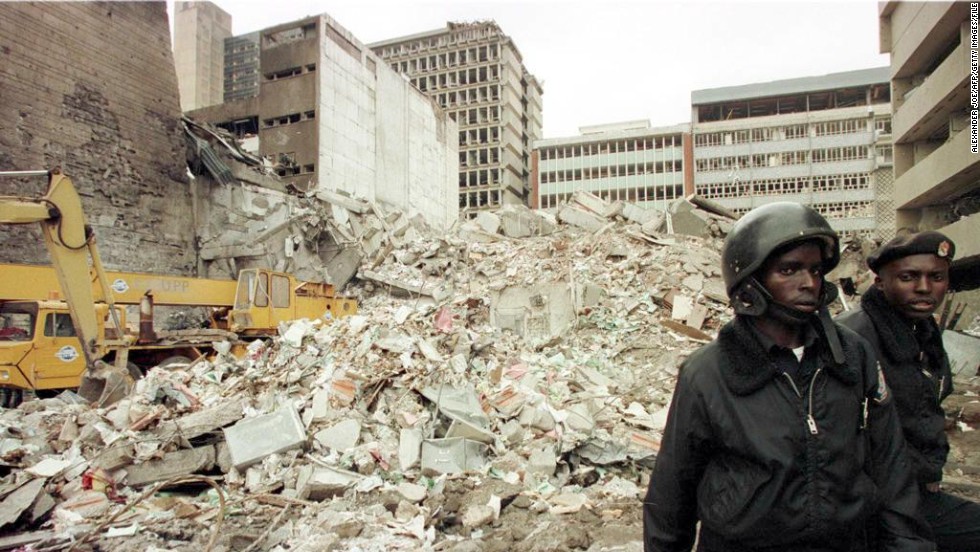This could be the end of the long struggle after the outgoing United States second-highest official in the US State Department hinted of a fair compensation for Kenyan who were victims of the Nairobi embassy bombing 20 years ago.
Speaking to a commemorative gathering at the State Department, Deputy Secretary of State John Sullivan noted a point made to him by Prudence Bushnell, the US ambassador to Kenya at the time of the attack.

In his statement he said, “Ambassador Bushnell has impressed upon me the need…to continue to work to make sure that the United States government not only remembers, but does all that it needs to, to make everyone impacted by those events to be made whole – to be respected and made whole.”
According to the advocates for Kenyan citizens affected by the August 7, 1998,terrorist attack have argued that the State Department should make reparations because it had failed to protect the Nairobi embassy from the deadly attack.
Ambassador Bushnell has repeatedly stated that she had urged the State Department on numerous occasions to bolster security at the embassy. Her pleas went unheeded.

At Tuesday’s commemorative event, she recalled being told “that the richest nation in the world did not have the resources to fix an embassy that did not even meet our own security standards.”
Ms Bushnell said in an interview with one of the TV stations in 2017 that she believes Kenyans are entitled to compensation for injuries and losses suffered in the attack.
While Deputy Secretary Sullivan did not explicitly pledge on Tuesday that compensation will be paid to Kenyans harmed by the bombing, a standard US legal dictionary defines the term to be “made whole” as synonymous with payment of damages.

Black’s Law Dictionary, first published in 1891, states that a court order for compensation may require money to be paid “by a person whose acts or omissions have caused loss or injury to another, in order that thereby the person damnified may receive equal value for his loss, or be made whole in respect of his injury.”
Phillip Musolino, an attorney representing 538 Kenyan citizens affected by the bombing, said last week that he will continue pressing for US government monetary compensation until it is provided.
In the years immediately following the bombing, the US Agency for International Development made payments of nearly USD45 million mainly for medical expenses to the families of 173 Kenyan citizens killed or injured in the explosion.
But Kenyan citizens unaffiliated with the US embassy in Nairobi have not received any monetary compensation for damages they suffered in the attack.
At Tuesday’s ceremony Ms Bushnell paid tribute to a woman she referred to as “Kenyan Rose” whom she said had taught her “real resilience.”

Rose Wanjiku had survived for four days under the rubble of the neighbouring Ufundi House destroyed in the embassy bombing on August 7, 1998.
But Ms Bushnell recounted how Ms Wanjiku died, 15 minutes before her body was recovered on August 12, 1998.

David Gacheru, the deputy chief of Kenya’s embassy in Washington, attended Tuesday’s commemoration at the State Department.